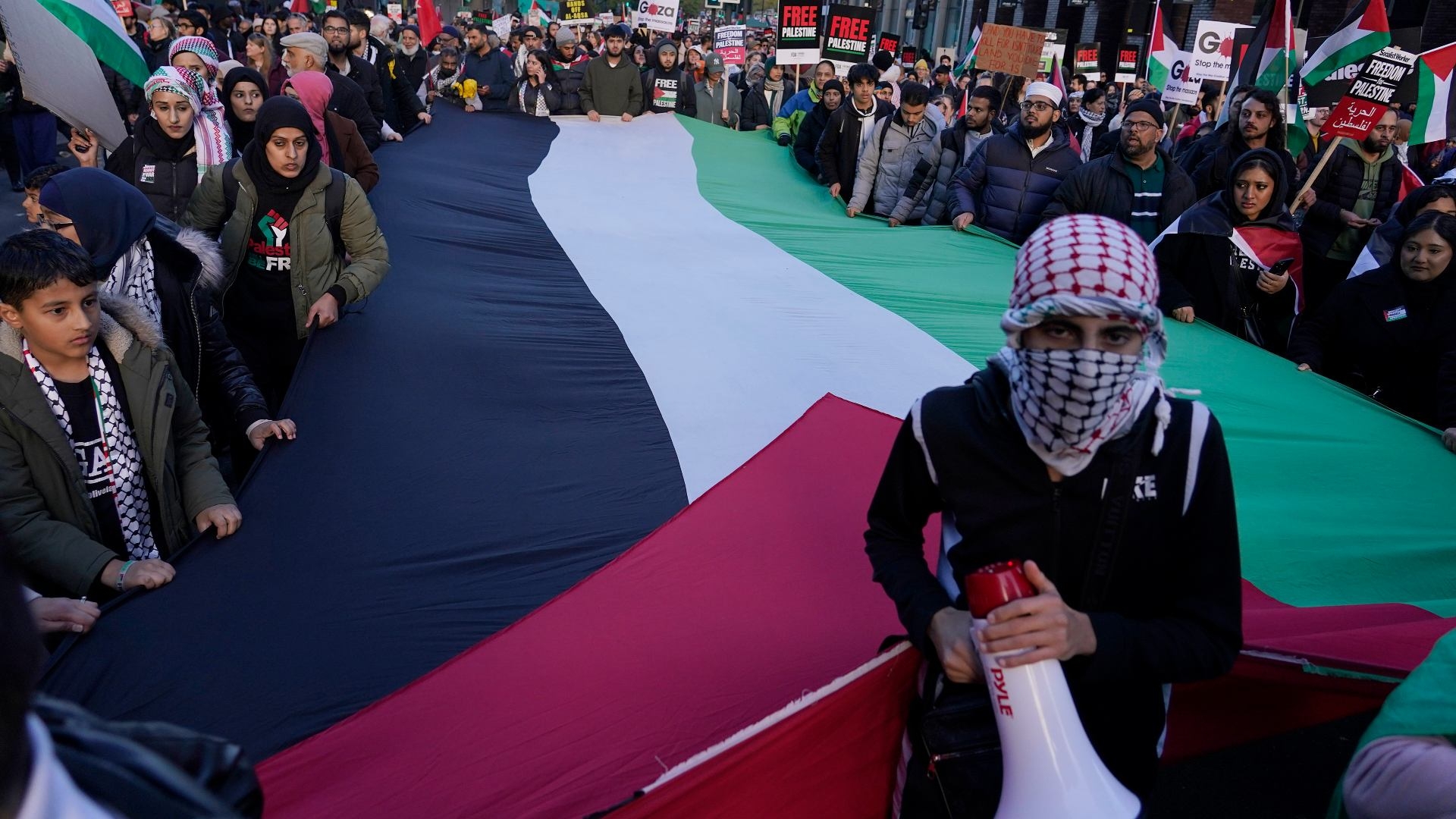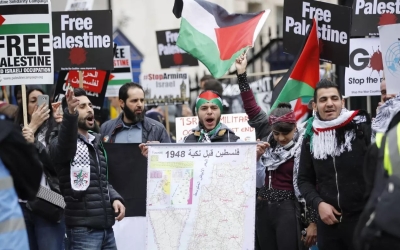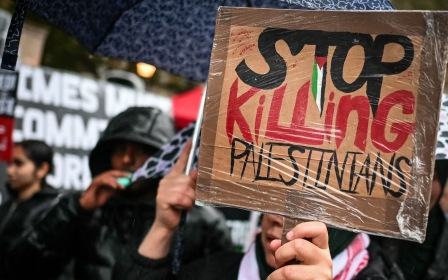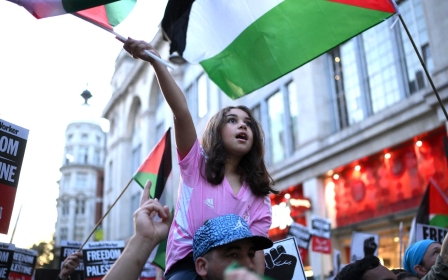UK: New laws to police Palestine protests would damage free speech, watchdog warns

The UK’s terrorism legislation watchdog has told the government that there is no need for new terrorism laws despite calls by ministers for a crackdown on pro-Palestinian demonstrations.
In a report to the Home Office published on Thursday, Jonathan Hall KC, the independent reviewer of terrorism legislation, said there was “good reason for caution” over extending the scope of terrorism laws.
Hall said existing laws were sufficient to ensure that any “terrorist mischief” around protests could be addressed by arrest and prosecution, and noted that the “edges” of these were currently being tested by cases before the courts.
He warned of the dangers of unintended consequences if new crimes were created, and said that a general solution of banning all references to terrorists or terrorist acts at public marches should be “rejected at the outset”.
“Especially on political matters or questions of public interest, members of the public should not be daunted from exercising their freedom of expression and right of lawful assembly based on laws which are vague or which they cannot be expected to understand,” Hall said.
New MEE newsletter: Jerusalem Dispatch
Sign up to get the latest insights and analysis on Israel-Palestine, alongside Turkey Unpacked and other MEE newsletters
But Hall was criticised by Cage, an advocacy group representing people affected by counter-terrorism policies, which said he had failed to address the disproportionate implementation and discriminatory impact of existing laws.
Cage has accused police of mounting a "campaign of intimidation and bullying" against people expressing support for Palestine.
Anas Mustapha, Cage's head of public advocacy, told Middle East Eye that Hall through his previous comments had been instrumental in encouraging a broad interpretation of terrorism laws which had led to arrests and prosecutions and was "open to abuse".
Mustapha said: "In the absence of Hall's public statements such prosecutions would not be mounted and certainly not as terrorism offences."
Hundreds of thousands of people have attended demonstrations in London and other cities organised by pro-Palestinian organisations on successive weekends to call for a ceasefire in the war between Israel and Hamas in Gaza.
The largest protest so far went ahead on Saturday 11 November despite ministers calling on the police to ban the event because it coincided with Armistice Day. Another protest is set to take place on Saturday 25 November.
'It has never been the tradition of UK law to make certain words unutterable in themselves: the law looks at the consequence of words'
- Jonathan Hall KC
Suella Braverman, who was subsequently sacked as home secretary, described the protests as “hate marches”.
Organisers say protesters are marching in support of the rights of the Palestinian people, and to call for a ceasefire and respect for international law.
Police have arrested and sought to identify a small number of people suspected of wearing clothing, chanting or carrying banners deemed to indicate support for Hamas, a proscribed terrorist organisation in the UK, at pro-Palestine protests.
Hall said that an existing terrorism offence of deliberately inviting support for a proscribed organisation “could well arise in the context of protests”.
“A person who deliberately used slogans or images which amounted to an invitation to provide support to Hamas would commit the offence,” he said.
Follow Middle East Eye's live coverage of the Israel-Palestine war
Offences of recklessly encouraging support for a proscribed organisation, and wearing or displaying an article linked to a proscribed organisation, were also relevant, he said.
But Hall said it was hard to see how adaptations to broaden the scope of these offences to cover speech in a public place could be made without “excessive damage to free expression”.
Tightening the law to target specific chants would also be a “recipe for disaster” he said.
Protesters have been criticised by ministers for chanting “From the river to the sea, Palestine will be free”.
Pro-Israel groups say the chant is antisemitic because they interpret it as calling for the destruction of Israel.
Pro-Palestine groups say it is a call for freedom and equal rights for Palestinians in their historic homeland.
Hall said: “Imagine a scenario in which Parliament legislated that a particular phrase was unsayable: within hours people would be gleefully conjuring up alternatives. It has never been the tradition of UK law to make certain words unutterable in themselves: the law looks at the consequence of words.”
As an example, Hall cited “jihad” which he said “can have benign and cherished meanings of personal significance to millions of people”.
Immigration Minister Robert Jenrick last month accused people who chanted “jihad” at a Hizb ut-Tahrir demonstration organised on the same day but separately to the main pro-Palestine rally of “inciting violence”.
Police said that no offences had been committed.
Hall said chants of “jihad” could amount to encouragement of terrorism in a context in which the meaning of the word would likely refer to violence, and in which “members of the public might reasonably see a chant of 'jihad' as encouragement to carry out their own act of terrorism”.
But he said encouragement was regarded as a “very serious terrorism offence” that was not intended to be used as a means of enforcing public order.
Mustapha told MEE that policing of pro-Palestine protests already amounted to an "egregious assault" on freedom of expression at odds with human rights law.
Middle East Eye delivers independent and unrivalled coverage and analysis of the Middle East, North Africa and beyond. To learn more about republishing this content and the associated fees, please fill out this form. More about MEE can be found here.





